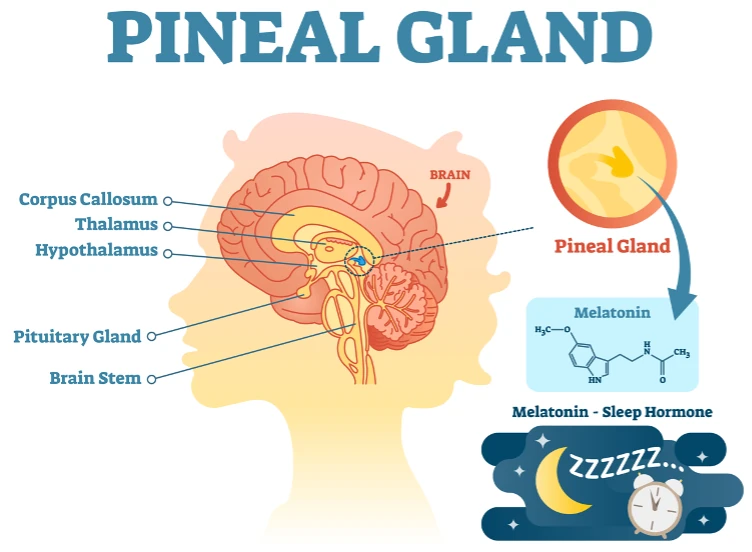Sleep difficulties are a frequent concern among new parents. Struggling with a baby’s sleep patterns can be a source of stress and exhaustion for both parents and children, but it is important to understand that this is a normal part of the early stages of parenthood.
It is natural for parents to wonder if they are doing everything correctly in raising their child. But remember, sleep challenges are part of the parenting journey, and most families experience them. This article will explore practical tips and strategies to help babies sleep properly. We’ll cover common sleep challenges, healthy sleep habits, and gentle techniques to try and settle your baby when they are awake during the night.
When do babies sleep through the night?
The perception of babies sleeping through the night can be misleading. Babies can’t sleep consistently through the night without waking. They wake briefly, but then they often fall back to sleep without making much noise.
Newborns: Sleep is fragmented during the newborn stage. Newborns sleep vary from 8 hours to 16 or 18 hours, but their sleep cycles are short. They wake up frequently for feeding, diaper changes, and comfort, which is normal. As a new parent, expect irregular sleep patterns and nighttime awakenings.
2 to 3 Months: Some babies begin to consolidate their sleep around 2 to 3 months. They may sleep longer at night, but waking up for feeding or comfort is still common. Some babies can sleep 8 hours or longer at night, but this is not the case for all infants. Naps during the day become more predictable, and the baby develops a loose sleep routine.
4 Months: The 4-month mark often brings a sleep regression. Babies who previously slept longer may start waking up more frequently. This can be due to developmental changes, growth spurts, or teeth development. Sleep training techniques can help to establish healthy sleep habits during this phase.
5 to 6 months: Many babies can have longer nighttime sleep. Some may sleep for 6 to 8 hours without waking. A consistent bedtime routine and a soothing sleep environment can support better sleep during this period.
6 to 12 months: At this stage, many babies no longer require nighttime feedings; some can sleep for up to 12 hours straight through the night. However, teething discomfort or hunger may still cause some babies to wake during the overnight hours.
12 months and beyond: Once babies reach their first birthday, they typically require around 12 to 15 hours of total sleep daily. Most 2-year-olds will sleep for 11 to 12 hours overnight, supplemented by 1 or 2 daytime naps. As children reach preschool, their sleep needs range from 8 to 14 hours daily. While these children drop their daytime nap, some still require it in the afternoon.
It’s important to note that these are general guidelines, and every child’s sleep patterns and requirements are unique. The key is to observe a child’s individual needs and adjust their sleep schedule to ensure they get the rest they need to grow and thrive.
What prevents babies from sleeping through the night?
Understanding the factors that disrupt a baby’s sleep is crucial for restful sleep. While it’s normal for babies to wake periodically, certain issues can significantly impact their sleep patterns. Here are some common reasons babies may struggle to sleep through the night.
Hunger: Babies have small stomachs and need frequent feeding. Hunger often prompts nighttime awakenings. Ensure regular feeding during the day to minimise hunger-related disturbances at night.
Separation Anxiety: Babies form strong attachments to their caregivers. Separation anxiety can cause them to wake up to seek comfort and reassurance. Gradually introducing independent sleep routines can ease this anxiety.
Environment: The sleep environment plays a vital role. Factors such as room temperature, noise levels, and lighting can affect a baby’s sleep. Creating a calm, consistent sleep space can promote better sleep.
Teething: This can be a challenging and uncomfortable experience for babies. As teeth emerge through the gums, infants may experience pain, irritability, and discomfort that can make it difficult for them to fall asleep or stay asleep through the night.
Growth Spurts: Babies often experience rapid growth and development, known as growth spurts. These growth spurts can significantly impact a baby’s sleep patterns, as they may experience increased hunger and restlessness during these times.
Developmental milestones: Learning new skills (such as rolling over or crawling) can affect a baby’s sleep. Excitement or practicing these skills during sleep hours may lead to wakefulness.
Remember that each baby is unique; addressing these factors with patience and care can improve sleep patterns.
How to help your baby sleep through the night
Newborn babies have different sleep patterns than older babies and children. Their sleep-wake cycles are often irregular. This is normal for their development but can be challenging for parents. Here are some effective strategies to help your newborn baby develop a more consistent and restorative sleep routine:
Establish a consistent bedtime routine
A predictable bedtime routine can significantly improve your baby’s sleep patterns. Creating a calming sequence of activities, such as a warm bath, gentle massage, and reading a soothing story, can help your baby associate these cues with sleep onset. Maintaining consistency in this routine will provide security and promote a smooth transition to sleep.
Optimise the sleeping environment
The sleeping environment is crucial for promoting restful sleep in your newborn. Here are some key considerations:
- Maintain the room temperature between 68°F and 72°F (20°C to 22°C) for optimal comfort.
- Use blackout curtains to minimise disruptive light exposure and ensure the room is dark.
- Incorporate gentle, consistent white noise to help mask sudden or intermittent sounds that could disturb your baby.
- Provide a comfortable, firm mattress and fitted sheets in your baby’s crib to create a cosy, secure sleeping space.
Embrace the art of quiet
During feedings or diaper changes, it is essential to maintain a calm and quiet atmosphere. Avoid stimulating play or turning on bright lights, as these can disturb your baby’s circadian rhythm and make it more challenging for them to settle back to sleep. Keep interactions brief and soothing to facilitate a smooth transition back to sleep.
In addition, two effective strategies that help babies sleep through the night are bedtime fading and graduated extinction. Bedtime fading involves putting the baby to bed 15 minutes later each night until they fall asleep quickly, at which point the bedtime no longer needs to be delayed.
Graduated extinction is a technique in which the parents slowly increase the time they wait before responding to their baby’s cries. They start by waiting 2 minutes, then 4 minutes, then 6 minutes, and gradually extend the waiting time. This teaches the baby to soothe themselves and fall back asleep independently without needing the parents to respond to every cry immediately.
Should you be worried if your baby isn’t sleeping at night?
Occasional nighttime awakenings are normal in a newborn’s sleep-wake cycle. However, persistent sleep disturbances may raise concerns for parents and require further consideration.
Age-Appropriate Sleep Patterns
It is important to understand that a baby’s sleep needs evolve as they grow. Newborns typically wake up every 2 to 3 hours for feeding, while older infants may be able to sleep longer. It is important not to compare your baby’s sleep habits to other children’s, as each infant’s sleep patterns may vary within the normal developmental range.
Developmental Milestones
Babies often experience temporary sleep disruptions during significant developmental progress. Factors such as teething, learning new motor skills like crawling, and the emergence of separation anxiety can all contribute to changes in sleep patterns. These transitional phases are typically short-lived, and most babies will eventually settle back into a more consistent sleep routine.
Seek Professional Guidance
If your baby constantly struggles with sleep, it is advisable to consult your paediatrician. A healthcare professional can help to rule out any underlying medical issues, such as reflux, allergies, or sleep apnea, and provide personalised guidance based on your baby’s needs and circumstances.
How much sleep does your baby need?
The recommended average total sleep durations for babies vary based on age. These sleep guidelines support a baby’s healthy growth and development.
Newborns: Newborn infants require significant sleep, with health experts recommending 14 to 17 hours of sleep per day. This total sleep duration encompasses nighttime and daytime naps, as newborns typically sleep around the clock, waking every 2 to 4 hours for essential care activities like feeding, burping, and soothing.
4 to 6 months: As babies reach this age, their total sleep duration decreases slightly to 12 to 16 hours daily. During this period, babies begin to develop more consolidated sleep patterns, with some overnight stretches reaching 5 to 6 hours, commonly called “sleeping through the night.” Naps also become more consolidated, averaging about 3 per day by 5 months of age.
6 to 12 months: From 7 to 11 months, a baby’s total sleep duration remains relatively consistent at 10 to 12 hours overnight, with the potential for longer overnight stretches. Naps further consolidate during this period, with babies typically taking around two naps daily.
12 months and beyond: At 12 months of age, babies typically require 12 to 15 hours of total sleep per day. By 2 years, most children sleep for 11 to 12 hours at night, with an additional 1 or 2 naps during the daytime. For children aged 3 to 4 years, the average sleep need is around 12 hours, though this can range from as little as 8 hours up to 14 hours. Some young children in this age group may still require a daytime nap.
How can you cope with restless nights?
Sleepless nights are an inevitable part of parenting, especially during the early months. Here are some strategies for coping with restless nights.
1. Share the Load: Take turns with your partner during nighttime feedings and soothing sessions. Splitting responsibilities can give each of you a chance to rest.
2. Create a Soothing Environment: Make your baby’s sleep space as comfortable as possible. Dim the lights, use white noise, and maintain a consistent temperature. A calm environment can help both you and your baby to relax.
3. Self-Care Matters: Prioritise your well-being. When your baby naps during the day, try to rest alongside them. Remember, a well-rested parent is better equipped to handle nighttime awakenings.
4. Seek Support: Connect with other parents who understand this situation. Online parenting forums, local support groups, and friends can provide emotional support and helpful tips.
5. Learn About Sleep Cycles: Babies have shorter sleep cycles than adults. They wake up more frequently due to hunger, discomfort, or developmental changes. Understanding baby sleep cycles can help parents cope with them better.
6. Avoid Overstimulation: Keep night time interactions quiet and minimal. Avoid bright lights, excessive play, and stimulating activities. This helps signal to your baby that it’s time to sleep.
It is important to remember that every parent faces sleep challenges, and it is natural to feel tired. It is important to be patient with oneself and the child. If a parent is struggling, it is recommended to consult a healthcare specialist as appropriate. If you are worried about your baby’s sleep, please visit your local GP and child specialist as soon as possible. We have also provided further articles on sleep that may be of interest to you discussing the benefits of sleep and how to improve sleep hygiene.










